If Trump meets Kim Jong Un, who will be his Kissinger?
In 2008, I was one of a few dozen foreign journalists who witnessed the destruction of the Yongbyon nuclear cooling tower in North Korea. Yongbyon was where North Korea had been processing plutonium, and leader Kim Jong Il wanted to show the world that he was serious about dismantling the reactor and meeting the U.S. and the other members of the so-called six-party talks halfway. At the time, it was viewed as a symbolic milestone in the history of nuclear negotiations between North Korea and other world powers, but the impression was fleeting; less than a year later, talks collapsed and the Kim dynasty accelerated its pursuit of a nuclear bomb. Ten years later, it has amassed a small arsenal of nuclear bombs and, increasingly, the ability to deliver them with long-range missiles.
It is with this backdrop — a North Korea on the brink of having a credible nuclear deterrent, a fitful history of failed negotiations, and now a shakeup at the very top of the State Department with the appointment of CIA Director Mike Pompeo to replace Rex Tillerson as secretary of state — that President Trump plans to meet Kim Jong Un, another survival-oriented and allegedly murderous scion of the Kim clan.
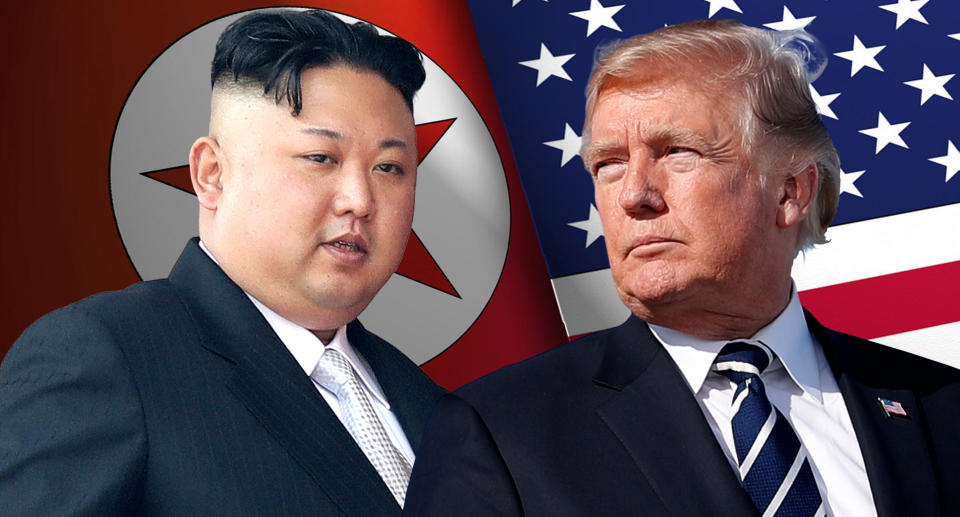
A summit between Trump and the 30-something Kim, apparently brokered by South Korea, shocked everyone in the diplomatic sphere. A sitting U.S. president has never met with a North Korean leader. But reportedly without consultation or deep consideration, Trump said “yes” when a South Korean envoy pitched the idea at the White House, and now the world is aflurry with speculation about how this will all play out.
There is only one obvious precedent for this dramatic personal intervention by a U.S. president in high-stakes diplomacy with an adversary: Richard Nixon’s 1972 trip to China to meet Mao Zedong, after decades of hostility. But the comparison is misleading, and tells much about how Trump conducts himself on the world stage.
In the world of professional diplomacy, a summit of such historic import is usually the culmination of years of lower-level diplomatic maneuvering. Moreover, Nixon had articulated during his candidacy his view that a better relationship with China would be strategically important vis-à-vis the Soviet Union. When he sent his national security adviser, Henry Kissinger, to meet secretly with the Chinese a year before he himself met with Mao, it was part of a grand strategy and coherent policy. Numerous Korea watchers I’ve interviewed since Trump took office have said the current U.S. president does not have a clear policy on North Korea — as evidenced by vacillating messages that have come out of the president’s own mouth and Twitter feed in the last year. In just six months, the rhetoric has gone from “fire and fury” to the current plan for direct engagement at the highest level. The White House attributes this development to its policy of “maximum pressure” on Pyongyang. The U.S. led the way in U.N. Security Council sanctions that have put an unprecedented economic squeeze on Kim. For the first time, according to the South Koreans, Kim has agreed to freezing nuclear and missile tests and accepting U.S.-South Korean joint military exercises.
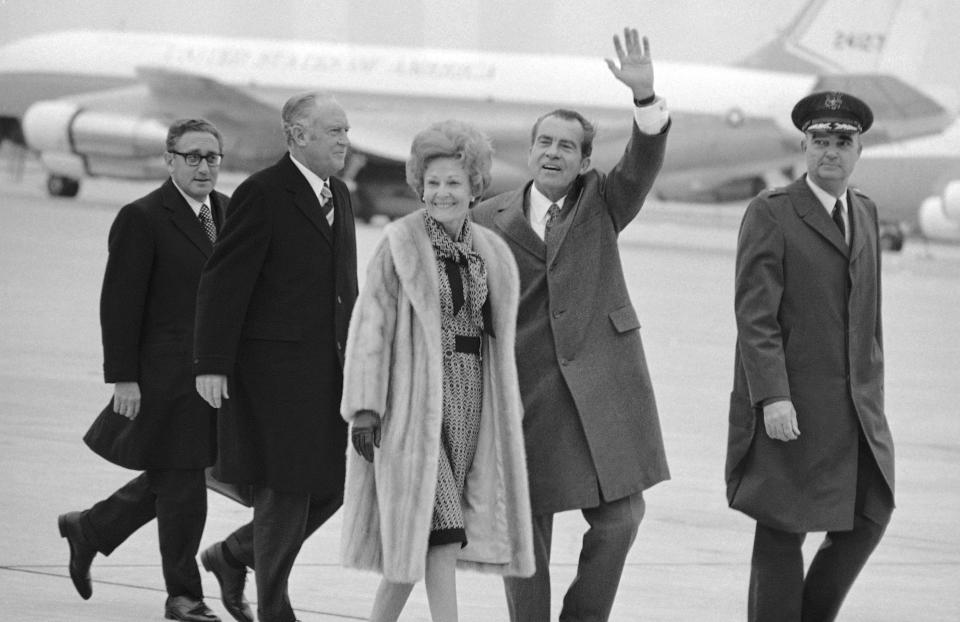
But there are some parallels with Nixon, who also kept his own secretary of state out of the loop before the summit. In Nixon’s case, that secretary was William Rogers. Trump’s top diplomat, Rex Tillerson, was in Africa talking about how conditions were not ripe for negotiations with Pyongyang a day before Trump accepted the invitation for direct talks with Kim. Tillerson cut his Africa trip short, and after returning to Washington was dismissed by Trump on Tuesday.
For those who have followed the rumors about Tillerson’s impending exit — which had earned its own nickname, “Rexit” — the change may not come as a surprise. But the timing of Trump’s personnel decision is critical. During his 14-month tenure, Tillerson had to reassure NATO allies of the American commitment to the alliance and temper concerns that Trump was planning to scuttle the Iran deal. He was at the head of a State Department toward which the president had shown disdain, cutting its budget and leaving key diplomatic posts unfilled. And when it came to North Korea, Tillerson was the one trying to keep diplomacy alive, even while Trump was threatening to “totally destroy” the DPRK in a speech at, of all places, the United Nations.
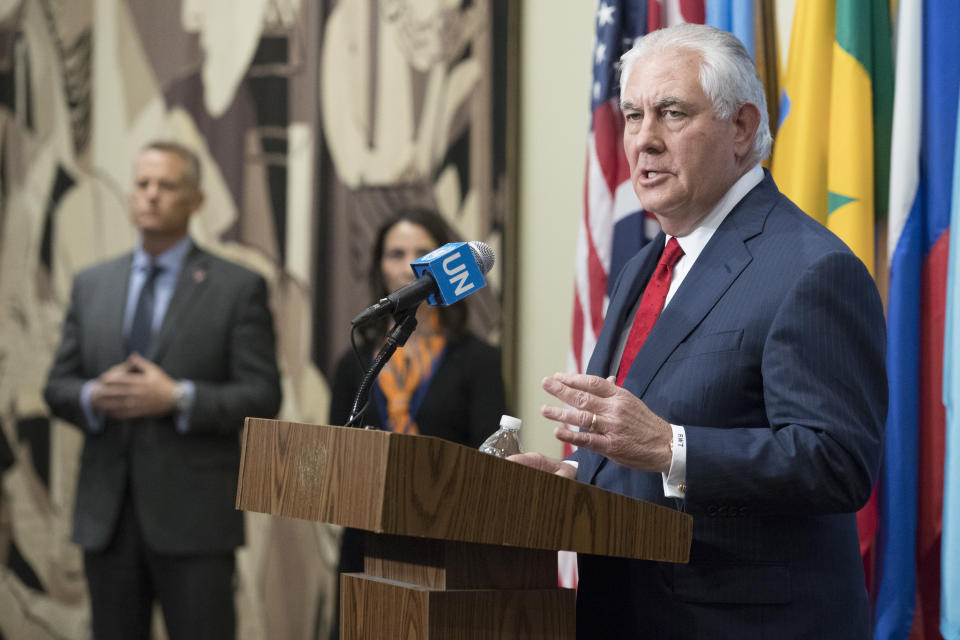
Ian Bremmer, president of Eurasia Group, tweeted in response to the Pompeo announcement: “Pompeo dramatically more hawkish on N Korea and Iran. Challenging day for the planet.”
During his time as CIA director, Pompeo made North Korea an urgent priority, finding “creative” means to interdict shipments into North Korea that violated sanctions and taking credit for improving intelligence gathering on the opaque nation. He has presented Trump with “options” if diplomacy fails, and has reiterated Trump’s stance that the goal is to have North Korea “denuclearize permanently.” A few days before Trump announced he was going to be the new head of the State Department, Pompeo was on the Sunday morning news programs, saying on Fox News, “While these negotiations are going on, there will be no concessions made.”
“I’ve worked with Mike Pompeo now for quite some time,” Trump said in the wake of the announcement. “Tremendous energy, tremendous intellect. We’re always on the same wavelength. The relationship has been very good. That’s what I need as secretary of state. I wish Rex Tillerson well.”
As discussions take place leading up to the potential summit, a big question is who will be Trump’s Kissinger — who will do the important work of coming up with an agreement with the North Koreans on the agenda, terms, expectations and protocols of a face-to-face meeting; who will be the point person on the U.S. side. Will it be the newly anointed Pompeo, who must still be confirmed by the Senate? Will it be Trump’s hawkish national security adviser, the former general H.R. McMaster, who has also been rumored to be on his way out? Will it be Jared Kushner, his son-in-law and special adviser who has been charged with solving the intractable Israeli-Palestinian issue (but who recently had his security clearance downgraded)? Which Trump acolyte has dealt with the intricacies of North Korea and nuclear diplomacy, and has the high-level clout to cooperate with allies and wrangle the president himself?
Peter Van Buren, a former consul at the U.S. Embassy in Seoul between 1997 and 2001, told me the South Koreans have effectively been playing the “Kissinger role” up to this point.
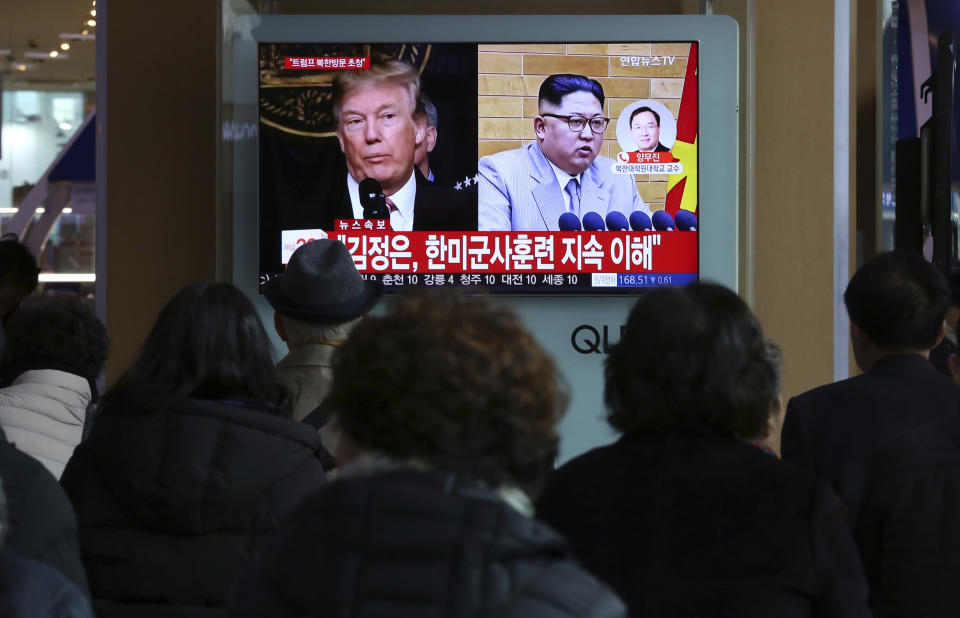
“The South Koreans are playing matchmaker, middleman and mediator,” he says.
The U.S. has not had an ambassador to South Korea in a year, and its most experienced envoy on North Korea, Joseph Yun, who opened the famed “New York channel,” which has facilitated dialogue between U.S. and North Korean officials, has just retired. Van Buren says there are plenty of others in the diplomatic corps who have traveled to North Korea and cultivated relationships with their counterparts, including the current U.S. deputy chief of mission in Seoul, Mark Knapper, who speaks Korean and “is accepted by South Koreans as a virtual ambassador.”
“We’ve gone nowhere, made no progress,” says Van Buren, who was based in Seoul when then-Secretary of State Madeleine Albright visited Pyongyang. “Trump, for better or worse, is not beholden to norms. He has disrupted this cycle.”
If the end result is a return to the current status quo, Van Buren surmises there will still be chances for diplomacy, but others are more pessimistic. Victor Cha, who was considered but ultimately rejected by Trump to become U.S. ambassador to South Korea, wrote recently in the New York Times of the high price of a botched meeting: “Failed negotiations at the summit level leave all parties with no other recourse for diplomacy.”
Through editorials and national TV interviews, Cha and other scholars, diplomats, North Korea watchers and assorted national security types have been eagerly proffering advice to Trump since he announced he would meet with the leader he once derided as “little rocket man.”
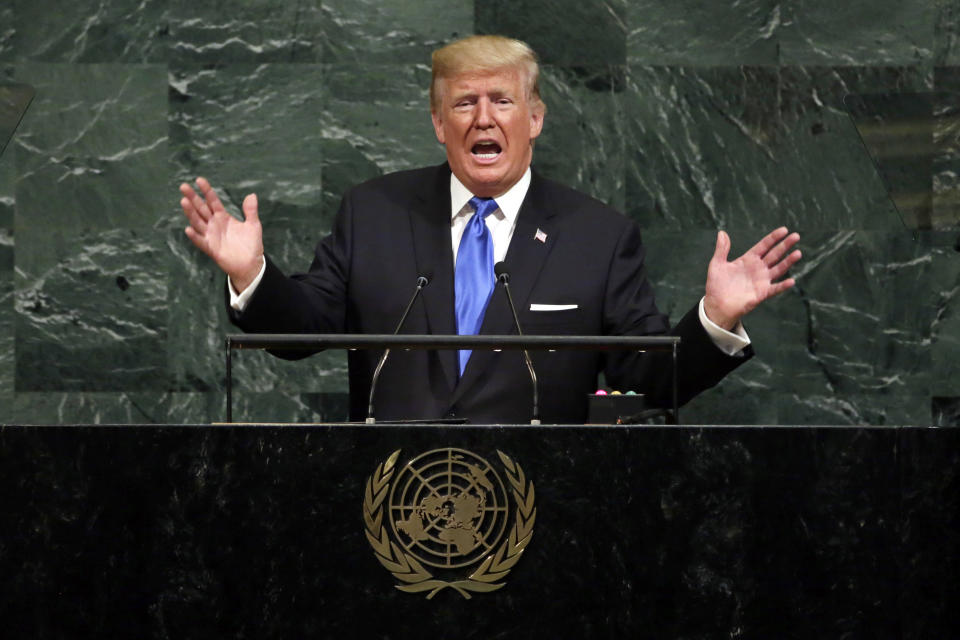
Not everyone agrees on the approach Trump should take. Nicholas Eberstadt credits the North Koreans’ “shrewd and successful ‘engagement’” with its current nuclear status, and warns that the negotiations are a zero-sum game that requires the U.S. to take a hard-line approach and deny the North “good faith” concessions. Longtime North Korea watcher Robert Carlin, who has participated in negotiations with North Korea, has a different view, describing the North Koreans as pragmatists who understand the give and take of “Diplomacy 101.” “High-level meetings with the North, in my experience, have not been a zero-sum game,” Carlin wrote in 38 North. “The last thing we should want is to force them into that mold.”
Many others are beseeching Trump to prepare assiduously before he meets the enigmatic Kim. Brookings Institution’s Asia expert, Jeffrey Bader, has listed the technical experts, scientists and former negotiators that Trump should consult in his list of “9 Things Trump should do before he meets with Kim Jong Un.”
Negotiations have started and stopped with the North Koreans with three successive U.S. presidents. Nicholas Kralev, author of America’s Other Army: The U.S. Foreign Service and 21st Century Diplomacy, says Trump would be wise to study previous negotiations, especially where they went awry, but he’s skeptical.
“I’m not optimistic because I don’t think Mr. Trump knows enough about North Korea, about the region, about nuclear weapons, about the program, and how to deal with someone like Kim Jong Un,” says Kralev.
_____
Read more from Yahoo News:


